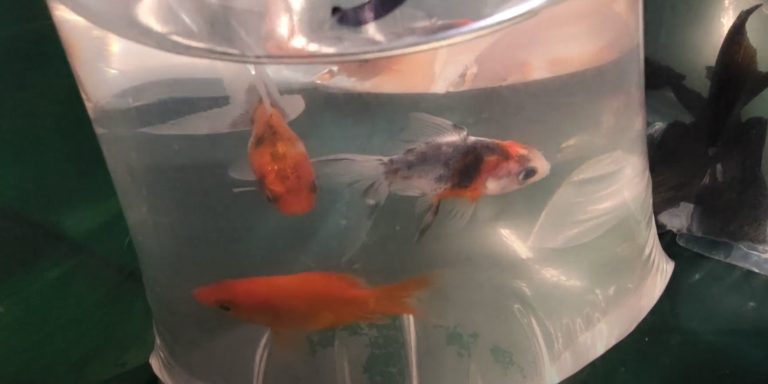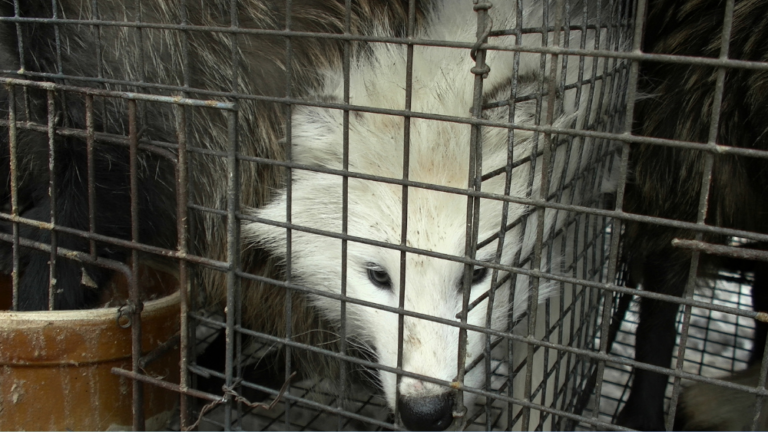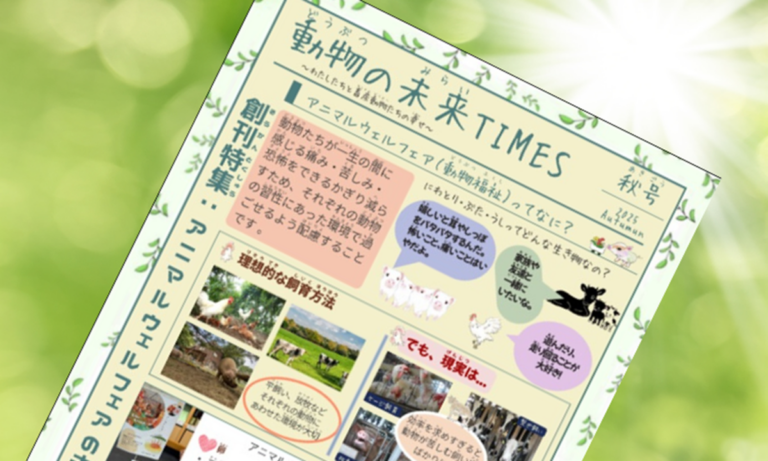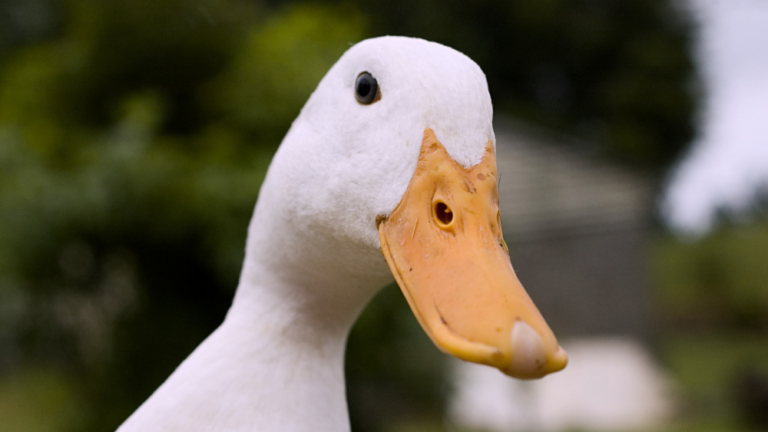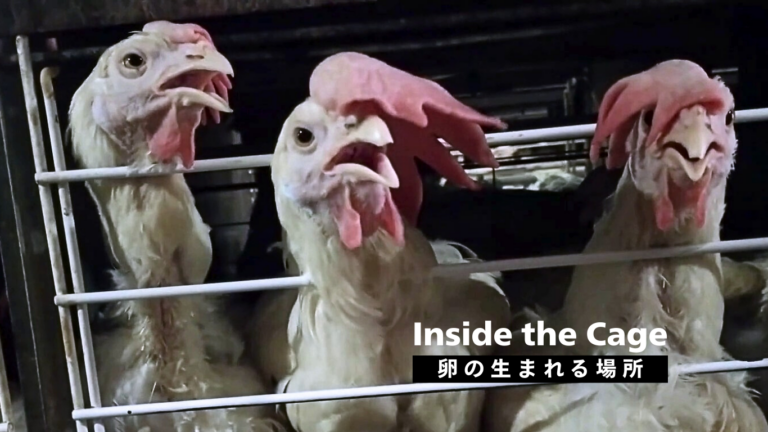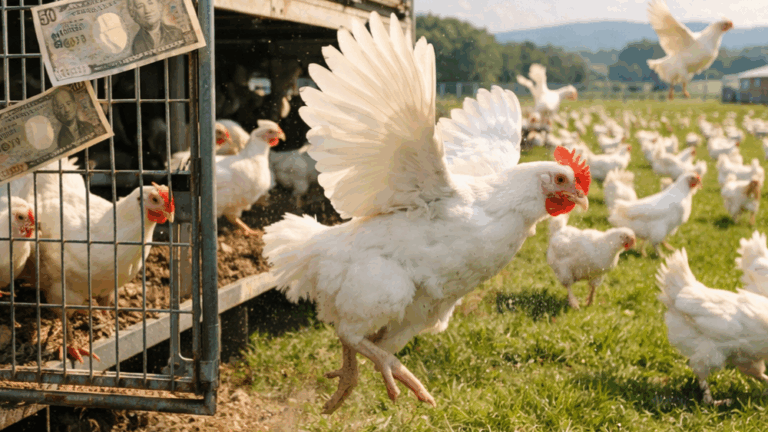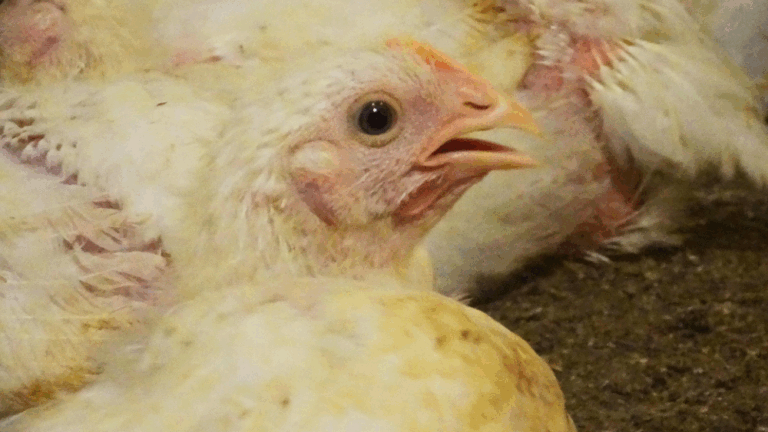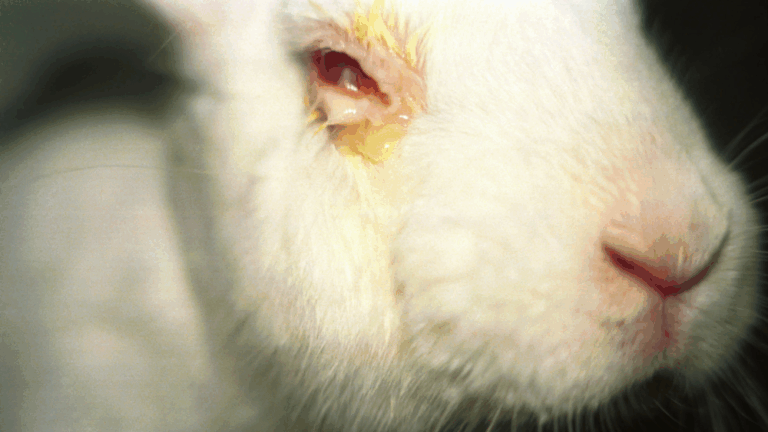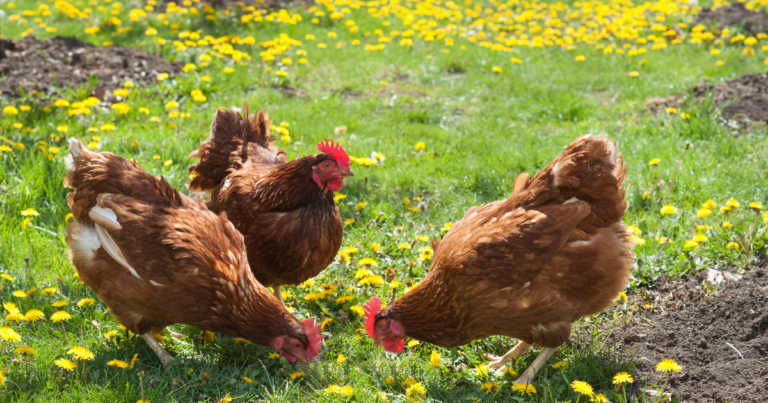Fishe are sentient being so that it has even been analyzed that “the perceptual and cognitive abilities of fishes are similar to or even exceed those of other vertebrates.”
In many countries, fish are included in the range of animal species that are protected by law as long as they are the same vertebrate. Even with Japan’s lagging law, although amphibians and fish are not included in the scope of penalties, they are within the scope of the Animal Protection Law.
The OIE’s Animal Welfare Code also does not include ornamental fish, but it does provide various recommendations based on scientific evidence for the welfare of farmed fish.
In November this year, the Animal Rights Center received a letter from a citizen, that reported that animals such as goldfish and killifish are sold in plastic bags in Cainz, a home improvement store. The person asked us to do something about it.
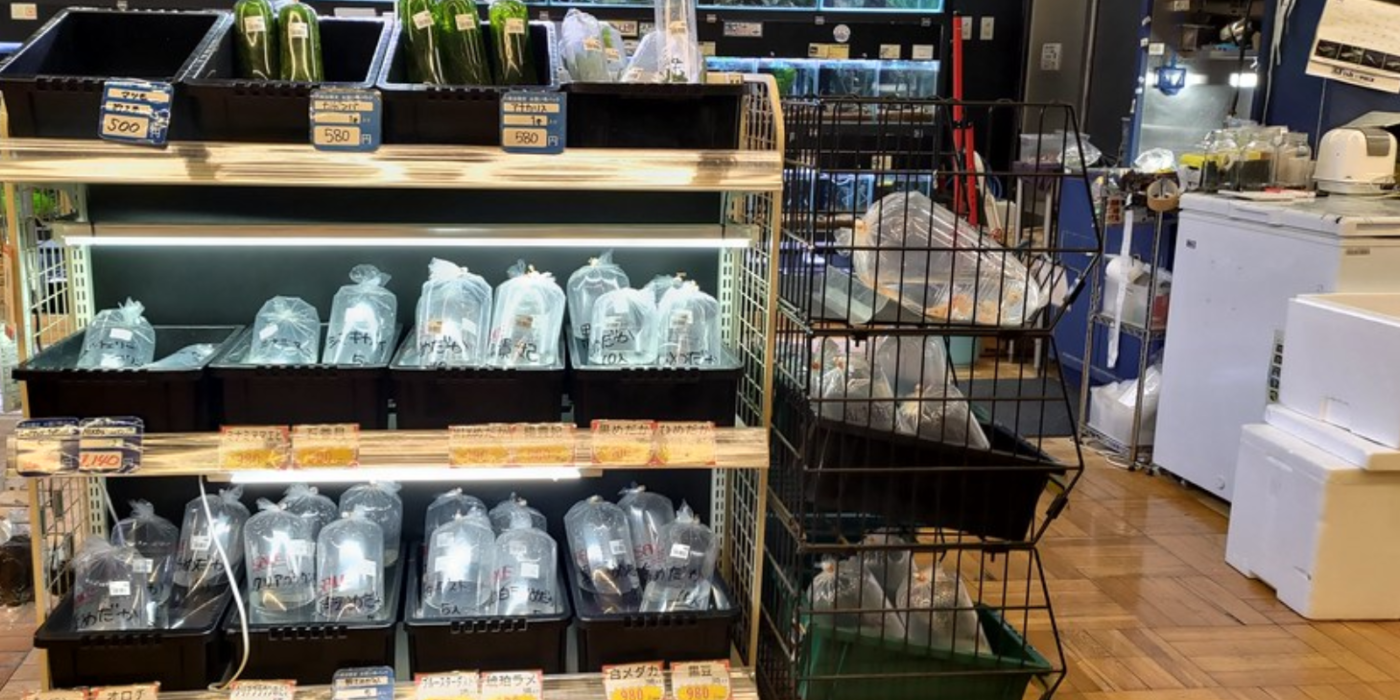
Plastic bags with fishes in them are displayed on the racks in front and on the right side of the store. A large number of plastic bags are displayed on simple shelves. The plastic bags were filled only with water and no care was given to the fish, and they were just floating there.
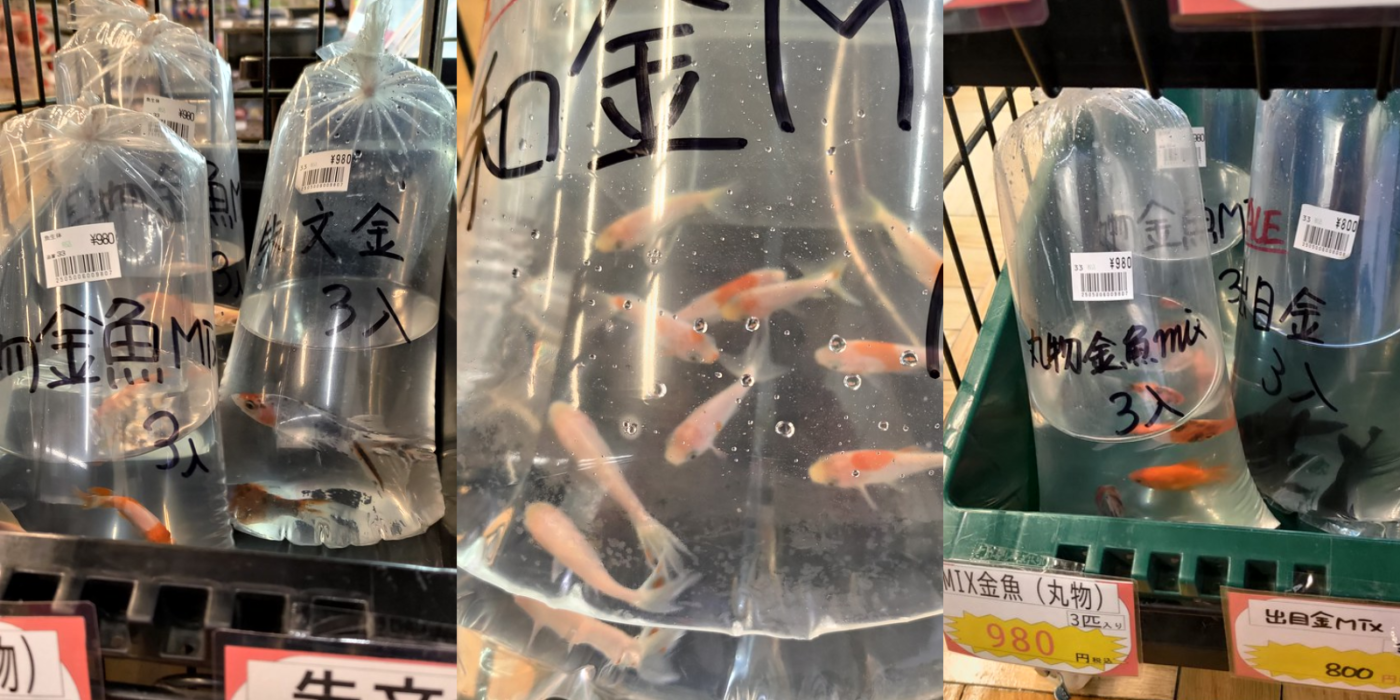
Even if there are no penalties for this situation, it is a way of keeping animals that is contrary to their ecology and in violation of the Animal Protection Law. It is also a way of selling animals that encourages customers to disregard life. Will they treat animals sold in this way with respect? We don’t think so.
They may think it is okay if a few die, they don’t care if they die on the way home, they are weak anyway, and so on. And they will learn that it is acceptable to treat animals’ lives in such a messy way.
In 2015, other home improvement store sold fishes in bags, but the store discontinued them immediately upon request.
However, to our surprise, Cainz only responsed that they would inform the department in charge but did not provide any further response. Even if we send them our request in writing instead of by phone, they say they cannot give us any response.
They talk about their departmentin charge as if it were an subcontractor. We told them that we want Cainz and the Beisia Group to decide to end their sales methods that disregard the lives and suffering of animals.
However, they told us that they will not reply further answer.
Cainz is a major home improvement retailer with 228 stores from Hokkaido to Kyushu, and the Basia Group has 1,946 stores including the large supermarket. It is a highly influential company which has achieved one trillion-yen sales in 2020. Such a company disrespects the suffering of animals and has even decided not to respond at all to all customers and groups. Without a response from Cainz, we cannot know if improvements are being made in all stores and for all time periods.
The only incentive for a company that cannot have this dialogue with us to improve their treatment of animals is consumer feedback. Please let Cainz know that they can no longer display and sell their fish in plastic bags with poor animal welfare practices.
Details of the request from the Animal Rights Center (omitted):
We received a report to our association about your company’s treatment of animals on your sales floor, saying that it is too bad and we want you to do something about it. We actually checked the display of goldfish, killifish, and other fish and determined that your company’s display and sales methods were indeed in violation of the Animal Welfare and Management Act and needed to be improved.
We therefore contacted you to request that you make improvements from the perspective of animal welfare and animal protection.
In Japan, fishes are not subject to regulations of penalties under the Animal Welfare and Control Law, but the Animal Welfare and Control Law itself applies to fishes.
The Animal Protection and Control Law states the following:
Fundamental Principles
Article 2 In view of the fact that animals are living beings, everyone shall not only ensure that animals are not killed, injured or tormented unnecessarily, but also that they are handled properly in consideration of their habits, while taking into account the symbiosis between humans and animals.
(2) When handling animals, any person shall, to the extent not detrimental to the achievement of the purpose of their care or keeping, feed and water them appropriately, take care of their necessary health, and ensure an environment for their care or keeping that takes into account their species, habits, etc.”
This principle applies even to fish.
However, your company’s handling of fish is in violation of this principle.
In addition, the “Basic Guidelines for Animal Welfare and Management” issued by the Ministry of the Environment states the following:
It is essential to have a sense of gratitude and respect for animal life, based on the idea that humans and animals are vital, continuous beings and to cherish all living things, and to reflect this sense in the handling of animals as living beings.
Unfortunately, I did not feel that your company’s handling of fish reflects an attitude of respect for life.
It is even more concerning that a company such as yours, which generates significant sales, has animals displayed and sold in this manner. Companies not only chase sales and profit, they also have a social responsibility, and the bigger the company, the bigger the responsibility. Your company’s continued position of disregard for animal life is leading Japanese society in the wrong direction.
Request to your company:
1) Stop selling fish in bags for display and switch to keeping fish in aquariums that are adequately sized and readily cared for.
2) Decide that all of your businesses (including tenants) will no longer sell live animals in bags or in any other manner that is less than animal welfare friendly.
We would appreciate your immediate consideration and decision.
We have made the same request to your call center in advance.
Unfortunately, however, we were told that no response would be given at all. The call center repeatedly reminded us that we could not expect a response even if we sent our request in writing. However, we have no way of knowing, other than your response, that your company has improved or will improve in all of your stores and for all periods of time. We again ask that you please respond to our request as to what improvements you would be willing to make to your husbandry practices.


